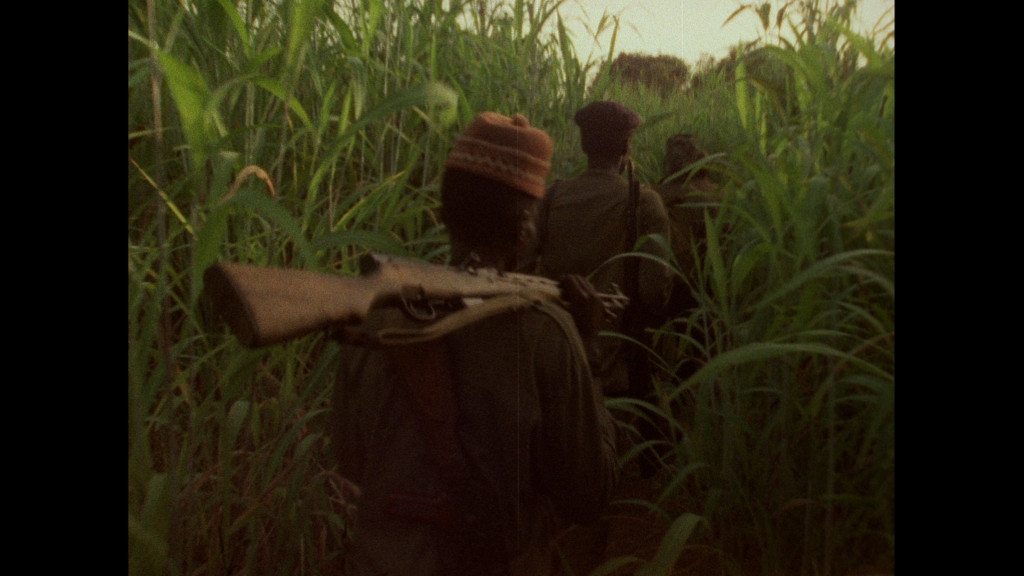Concerning Violence and Q&A at MAC Birmingham
Director: Göran Olsson
Cast: everyday revolutionaries, Lauryn Hill (English version narrator)
Length: 89 minutes
Country: Sweden, Finland, Denmark, USA
Concerning Violence presents nine chapters that document struggles for liberation in Africa from the 1970’s and 80’s overlaid with quotes from Franz Fanon’s famous work The Wretched of the Earth, a groundbreaking philosophical work that, among other things, justifies violence by colonised peoples against their oppressors.
Prominent postcolonial philosopher Gayatri Chakravorty Spivak introduces the film as a ‘teaching film’, but this is a unique kind of lesson we learn. It is not simply a historical film, but one that resonates today with continued exploitation of Africa in subtle new commercial ways. The content of the film ranges from a white couple watching black workers build a church, to a white Rhodesian insulting his black servant and lamenting the rise of black nationalism, to one of the most striking shots: a woman who has lost an arm staring blankly back at us while she breastfeeds her child, itself missing half a leg. The brutality of the imagery is some of the most powerful I’ve seen in recent documentaries, and acts as a renewal of the call to throw away the false question of violence vs. non-violence, one usually posed by those in power.
Concerning Violence presents the only honest way to make a documentary: with a passion and anger
This survey of events lends itself to a film that doesn’t try to teach you about the history of African liberation struggles via dates, significant events and figures, but through a critical arrangement of seemingly isolated events. These include workers strikes, interviews with female guerrilla fighters and evaluations of the financial and environmental exploitation of Africa during slavery. Colonisation which in many ways continues today. The film combines these to give a fragmented, nonlinear narrative that left me feeling that I needed to know more about this history and yet that, if I did know the historical facts, I would be in a position that distanced these events from the present day. In this way the film navigates the problem of being a historical documentary based on archival footage while also being a political essay film that renews an important question about political action that is almost forgotten.
Following the film screening at MAC Birmingham the audience participated in a Q&A with filmmaker and theologian Prof. Robert Beckford, Dr Kehinde Andrews who studies racism in contemporary UK and Dr Dima Saber, who studies social change and digital media in the Arab world. Many important questions were raised by all involved including what kind of representation of Africa this film put forward, whether or not the film was ‘too palatable’ in order to be marketable in the West and how, through the film, we can question who the filmmaker was. Andrews and Beckford both endorsed the view associated with Fanon, that violence by an oppressed group is legitimate, and echoed sentiments in the film that violence has always already occurred when hierarchies like colonial domination are in place. Saber made an interesting point by asking why is it that whenever she discusses Fanon’s work the conversation is dominated by the question of violence to the detriment of his wider work. Andrews echoed this point in a different way by stating that the question of violence is a distracting one, instead, he pointed out, we should ask whether or not we want revolutionary social change and act on that basis instead.
Concerning Violence presents the only honest way to make a documentary: with a passion and anger to reopen history, to excavate stories and find in them ways of reinvigorating the present that open up futures that had previously seemed impossible.
Images: Dogwoof Ltd.

Comments